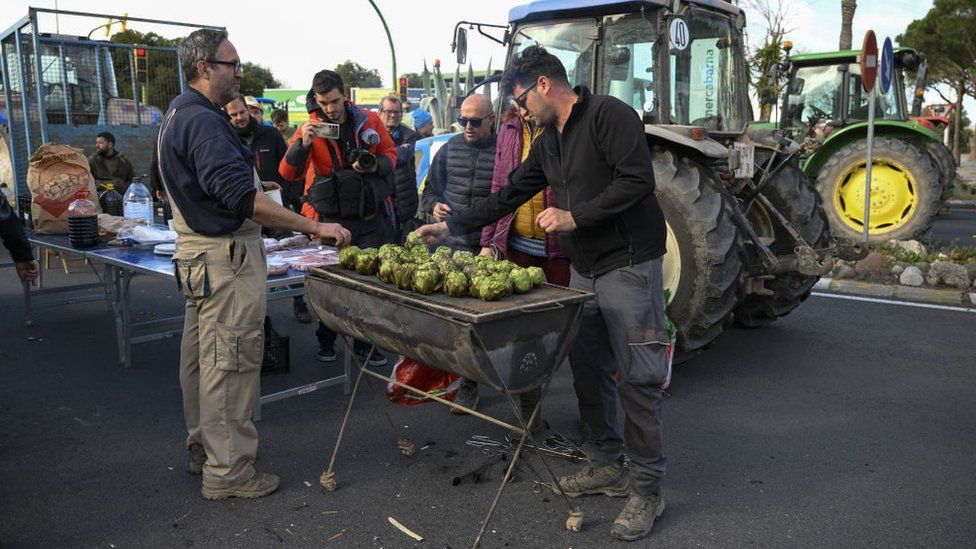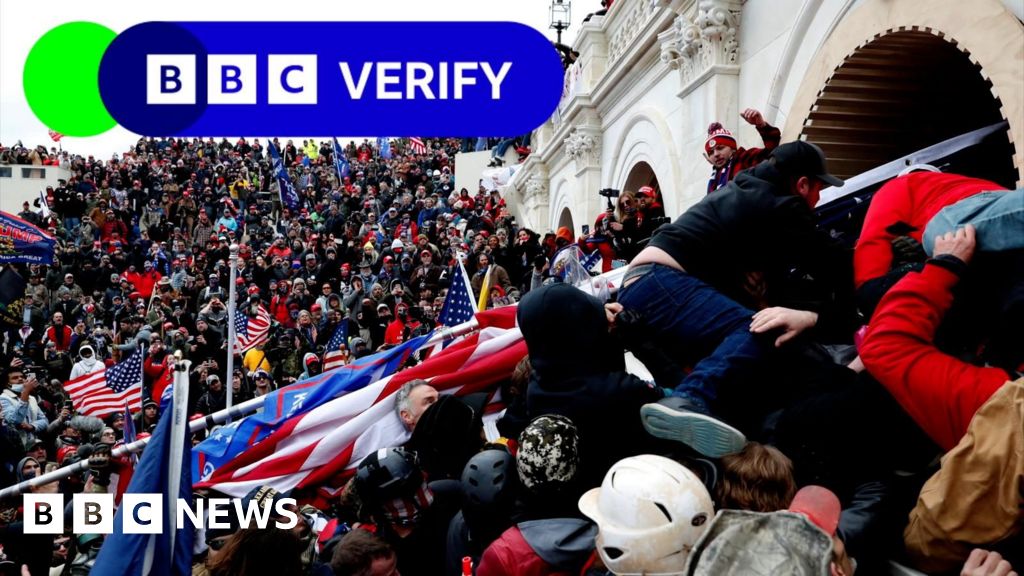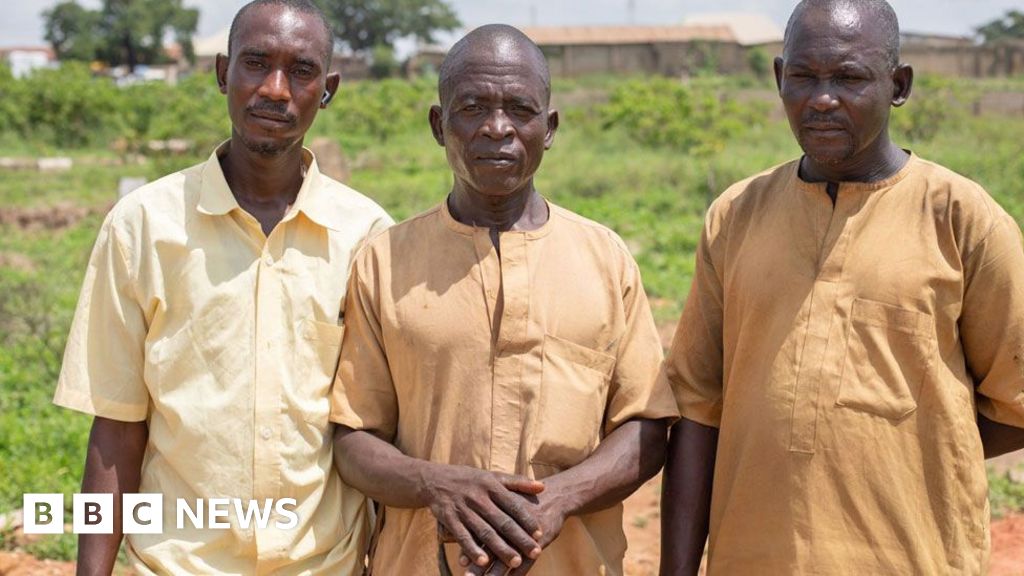ARTICLE AD BOX
 Image source, Getty Images
Image source, Getty Images
Protesting farmers in Barcelona, here cooking artichokes, want more assistance to help them deal with continuing drought
By Guy Hedgecoe
BBC News, Barcelona
The smell of barbecued artichokes wafts along a row of dozens of tractors parked in central Barcelona, as rock music blares out of speakers, and wine is poured into plastic cups.
The scene is festive, but this is a protest, not a party. Hundreds of Catalan farmers have driven into their region's capital to voice their grievances, central to which is the climate.
"We're now in a situation where we have a full-on drought," says Xavier Oliva, an artichoke farmer who owns land just outside the city. "If it doesn't rain you can't plant anything."
Oliva and his colleagues are protesting about a range of issues, including what they see as overly tight EU farming regulations. But the most immediate threat to their profession is posed by lack of water, and they are calling for more direct help from the regional government.
In late January, the water level of reservoirs supplying Barcelona and the towns surrounding it in the Ter-Llobregat basin system had dropped on average to below 16% of capacity.
The regional government of Catalonia responded by declaring a state of emergency affecting around six million people. That triggered the introduction of a range of restrictions on water use.
For livestock farmers that means only being allowed to consume half the water they would normally use, and for crop farmers like Mr Oliva, it means reducing water use by 80%.
"We'll plant 80% less crop than normal, or even less than that," says Mr Oliva, who is part of the El Prat farming cooperative, as he looks ahead to the coming months.
"It's pushing us closer and closer to a situation where we'll have to shut down our farms."
Image source, Juan Antonio Domínguez
Image caption,Xavier Oliva warns that the future of his farm is in doubt
Other measures introduced as part of the state of emergency include capping the amount of water town halls allow for consumption per day to 200 litres per person, with water pressure being reduced in towns where consumption has been particularly high. Also, river flows are being regulated, with their flows heavily reduced.
A number of restrictions have already been in place over the last year or so, with decorative fountains switched off, and tight controls on the watering of gardens and parks and the use of water for cleaning streets. However, the new measures, which will include the arrival of boatloads of water from other Spanish regions if the drought continues, are much more drastic.
"We wanted to be cautious and then begin to anticipate, plan and be prepared for the worst-case scenarios, like the one we have now," says Meritxell Serret, Catalonia's minister for foreign action.
Catalonia had a drought in 2007-08, but it only lasted around half the duration of this one, which began in the autumn of 2020, and is the worst since records began more than a century ago.
A 2021 drought plan drawn up by the regional government has sought to manage the impact of the current period of abnormally low rainfall. Irrigation systems have been modernised, leaks in water pipelines mended, and a total of €2.4bn ($2.60bn; £2bn) is scheduled to be invested in increasing water production capacity in the region by 2027.
There has been a major drive to diversify Catalonia's water sources away from rainfall, meaning that 55% of consumption in the area affected by the drought is covered by desalinated and recycled water, with those sources due to double their output in the next three years.
"What we've been trying to stress for the last three years is how to prepare for these drought scenarios, how to be more resilient regarding the negative expectations regarding climate change in the Mediterranean," says Ms Serret.
Image source, Getty Images
Image caption,Meritxell Serret insists that the Catalan government has been hard at work
Temperatures are rising in the Mediterranean region 20% faster than the global average, according to the UN's Climate Programme. Other areas of Spain, such as the southern region of Andalusia, are also suffering drought, although so far only Catalonia has declared a state of emergency.
On the outskirts of Barcelona, Canaletas, a company that makes and exports drinking fountains, is implementing the new norms imposed by the regional government, including a 25% reduction in water consumption by industries.
"That 25% reduction in water use, I think industry can adapt to it - not all but most industry, at least - if it's for a short time," says the company's owner, Jordi Morera. "But if this goes on indefinitely it's going to be a serious problem."
Canaletas, which employs 45 people, is installing water counters in its factory to gauge where savings can be made. Mr Morera says that toilets and bathrooms are where a lot of water use will be reduced.
However, he is concerned about the viability of the new guidelines. "If your company increases its output or its personnel, reducing [water consumption] is going to be impossible," he says.
Image source, Guy Hedgecoe
Image caption,Water levels in the reservoirs that feed Barcelona are very low
Other business leaders believe that industry should be compensated for the impact of the drought and the restrictions on water use.
"Measures need to be taken to offset the damage caused to companies in the form of formal financial help," says Jaume Roura, president of UPM, Barcelona's metal industry association.
Mr Roura also says that the Catalan government should have acted more promptly with regard to issues such as leaks in the region's pipelines. His association is currently evaluating the possible effect of the drought on industry.
"Apart from industrial output itself, water is necessary for the whole working of industry - healthcare, personnel, food - and so we're trying to understand exactly how big the impact of this will be," he says.
However, one consequence he is sure of is that less water will mean higher prices. "The consumer of the end product will have to pay for the increase in costs caused by the lack of water in the production chain," he says.

 10 months ago
46
10 months ago
46








 English (US) ·
English (US) ·